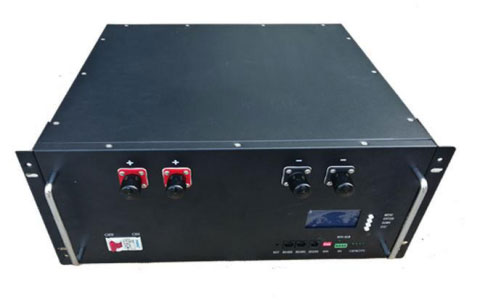Revolutionizing the Energy Industry: The Impact of Smart Grids and Lithium Batteries
In recent years, there has been a growing concern about the need to transition towards cleaner and more sustainable sources of energy. With the increasing demand for electricity and the urgency to reduce greenhouse gas emissions, the energy industry has been forced to explore new technologies and innovations. Two of the most promising advancements that are revolutionizing the energy industry are smart grids and lithium batteries.
Smart grids are a modernized version of the traditional electrical grid system. They incorporate advanced communication and automation technologies to optimize the generation, distribution, and consumption of electricity. By utilizing a network of sensors, meters, and control devices, smart grids enable real-time monitoring and management of energy flow. This allows for better coordination between power plants, renewable energy sources, and consumers, resulting in improved efficiency and reliability.
One of the key benefits of smart grids is their ability to integrate renewable energy sources into the grid. Traditional grids were designed to accommodate centralized power plants that rely on fossil fuels. However, with the increasing adoption of solar and wind energy, the generation of electricity is becoming more decentralized. Smart grids are capable of handling the variability and intermittency of renewable energy sources by dynamically adjusting the distribution and consumption of electricity. This not only reduces reliance on fossil fuels but also promotes the use of clean energy.
Lithium batteries, on the other hand, have emerged as a game-changer in the energy storage sector. Lithium-ion batteries, in particular, have gained popularity due to their high energy density, long cycle life, and fast charging capabilities. These batteries are widely used in portable electronic devices, electric vehicles, and now, in grid-scale energy storage systems.
The integration of lithium batteries into the energy industry has several advantages. Firstly, it enables better utilization of renewable energy. Energy generated from solar panels or wind turbines can be stored in lithium batteries during periods of low demand and released during peak hours. This reduces the need for backup power plants fueled by fossil fuels and allows for a more efficient use of clean energy.
Secondly, lithium batteries enhance grid stability and reliability. They provide a reliable source of power during blackouts or grid failures, ensuring uninterrupted electricity supply to critical infrastructure and residential areas. Additionally, they help balance the supply and demand of electricity, reducing the risk of power outages and grid instability.
Furthermore, lithium batteries facilitate the electrification of transportation. As the world moves towards a greener future, the demand for electric vehicles is increasing rapidly. Lithium batteries enable long-range driving, fast charging, and improved performance of electric vehicles, making them a viable alternative to traditional internal combustion engine vehicles. This not only reduces greenhouse gas emissions but also decreases our dependence on fossil fuels.
Despite these numerous benefits, there are still challenges that need to be addressed for the widespread adoption of smart grids and lithium batteries. One major hurdle is the cost. While the prices of lithium batteries have been decreasing steadily, they still remain relatively expensive compared to traditional energy storage options. Additionally, the installation and infrastructure costs associated with smart grids can be significant.

Another challenge is the need for regulations and policies that support the integration of these technologies. Governments and regulatory bodies need to incentivize the deployment of smart grids and lithium batteries through financial incentives and favorable policies. This will encourage investment in research and development, promote innovation, and accelerate the transition towards a cleaner and more sustainable energy future.
In conclusion, smart grids and lithium batteries are revolutionizing the energy industry by enabling the integration of renewable energy sources, enhancing grid stability, and promoting the electrification of transportation. While there are challenges to overcome, the potential benefits are significant. With continued advancements in technology, increased investment, and supportive policies, smart grids and lithium batteries have the power to reshape the energy landscape and pave the way towards a more sustainable future.
-
 Introduction: Communication base stations are the backbone of our modern wireless communication networks. They enable the transmission and reception of signals between mobile devices and the network infrastructure. These base stations require a reliable and efficient power source to ensure uninterrupted communication services. In recent years, lithium battery technology has emerged as a promising solution for optimizing the performance of...더 읽어보세요
Introduction: Communication base stations are the backbone of our modern wireless communication networks. They enable the transmission and reception of signals between mobile devices and the network infrastructure. These base stations require a reliable and efficient power source to ensure uninterrupted communication services. In recent years, lithium battery technology has emerged as a promising solution for optimizing the performance of...더 읽어보세요 -
 Energy storage is becoming an increasingly important issue in today\'s world, as more and more countries look to reduce their reliance on fossil fuels and move towards renewable energy sources. One of the key challenges in this transition is finding ways to store renewable energy efficiently and cost-effectively. Battery technology has emerged as a promising solution, as it allows energy...더 읽어보세요
Energy storage is becoming an increasingly important issue in today\'s world, as more and more countries look to reduce their reliance on fossil fuels and move towards renewable energy sources. One of the key challenges in this transition is finding ways to store renewable energy efficiently and cost-effectively. Battery technology has emerged as a promising solution, as it allows energy...더 읽어보세요 -
 Introduction In recent years, there has been a growing trend towards sustainable and clean energy sources as the world strives to reduce its dependence on fossil fuels. The increasing demand for electric vehicles, renewable energy storage, and uninterrupted power supply has led to a surge in the need for industrial batteries. These batteries play a crucial role in powering...더 읽어보세요
Introduction In recent years, there has been a growing trend towards sustainable and clean energy sources as the world strives to reduce its dependence on fossil fuels. The increasing demand for electric vehicles, renewable energy storage, and uninterrupted power supply has led to a surge in the need for industrial batteries. These batteries play a crucial role in powering...더 읽어보세요 -
 As the world becomes more conscious of the impact of energy consumption on the environment, renewable energy solutions have become increasingly popular. With solar panels and wind turbines becoming more affordable, the challenge now is to find the right energy storage solution to ensure that energy is available when it's needed. The answer may lie in the lithium iron phosphate...더 읽어보세요
As the world becomes more conscious of the impact of energy consumption on the environment, renewable energy solutions have become increasingly popular. With solar panels and wind turbines becoming more affordable, the challenge now is to find the right energy storage solution to ensure that energy is available when it's needed. The answer may lie in the lithium iron phosphate...더 읽어보세요 -
 오늘날 빠르게 변화하는 기술 중심 세계에서 산업계는 운영에 전력을 공급하기 위해 배터리에 크게 의존하고 있습니다. 창고의 지게차, 건설 현장의 크레인, 도로 위의 전기 자동차 등 산업용 배터리는 원활하고 중단 없는 작업 흐름을 보장하는 데 중요한 역할을 합니다. 그러나 이러한 배터리의 잠재력을 최대한 활용하려면 효율적이고 강력한 배터리를 갖추는 것이 중요합니다.더 읽어보세요
오늘날 빠르게 변화하는 기술 중심 세계에서 산업계는 운영에 전력을 공급하기 위해 배터리에 크게 의존하고 있습니다. 창고의 지게차, 건설 현장의 크레인, 도로 위의 전기 자동차 등 산업용 배터리는 원활하고 중단 없는 작업 흐름을 보장하는 데 중요한 역할을 합니다. 그러나 이러한 배터리의 잠재력을 최대한 활용하려면 효율적이고 강력한 배터리를 갖추는 것이 중요합니다.더 읽어보세요 -
 When it comes to finding the right U series supplier for your industrial needs, there are several factors to consider. The U series refers to a range of bearings manufactured by various companies that are commonly used in industrial applications, including heavy machinery, automotive, and aerospace industries. Here are some key factors to consider when selecting a U series supplier...더 읽어보세요
When it comes to finding the right U series supplier for your industrial needs, there are several factors to consider. The U series refers to a range of bearings manufactured by various companies that are commonly used in industrial applications, including heavy machinery, automotive, and aerospace industries. Here are some key factors to consider when selecting a U series supplier...더 읽어보세요 -
 리튬인산철(LiFePO4) 배터리는 최근 엄청난 인기를 얻고 있는 충전식 배터리 유형입니다. 이 배터리는 기존 배터리에 비해 많은 장점을 갖고 있어 다양한 응용 분야에서 선호되는 선택입니다. 이 기사에서는 LiFePO4 배터리의 장점과 응용 분야 중 일부를 살펴보겠습니다. LiFePO4 배터리의 장점 1. 고에너지...더 읽어보세요
리튬인산철(LiFePO4) 배터리는 최근 엄청난 인기를 얻고 있는 충전식 배터리 유형입니다. 이 배터리는 기존 배터리에 비해 많은 장점을 갖고 있어 다양한 응용 분야에서 선호되는 선택입니다. 이 기사에서는 LiFePO4 배터리의 장점과 응용 분야 중 일부를 살펴보겠습니다. LiFePO4 배터리의 장점 1. 고에너지...더 읽어보세요

